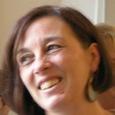10 Ways to BE MORE YOU:
Living creatively is about learning to enjoy your life and letting go of harmful stress. Easier said than done, of course, but like any other worthwhile endeavor, it takes practice and more practice. In fact as often as you can manage.
1. Have you worked out your priorities?
Keep a list – make any tasks possible. Prioritise them in order of importance and congratulate yourself when done. Include the important people in your life as priorities and make time for those relationships.
2. What situations stress you out most?
Write down those that leave you emotionally drained, with any ideas that could help reduce the stress. When they occur, use them as an opportunity to practise your relaxation techniques, and keep notes on what works for next time.
3. Are you reacting to imagined offense?
Being oversensitive to slights, innuendo or sarcasm can cause more conflict and depletes energy. Pause before reacting; if possible, talk over the situation with someone else who was present. They may have another perspective on what was said or done.
4. Are you committing yourself to other people’s expectations?
We often do things in order to feel accepted by other people. Try saying ‘no’ to requests that are unreasonable or are just too much to handle at that moment. Do you always feel that you need the approval of others?
5. Are you dwelling on past mistakes?
Learning from any mistakes rather than giving yourself a difficult time is less stressful, especially when you figure out if there is a way to make amends. Try to forgive yourself.
6. Are you bottling up anger and frustration?
Express and discuss your feelings with the person you think has contributed to your disturbed state of mind. Sometimes physical activity can help to relieve tensions, particularly if it can’t be discussed there and then. Try to forgive others.
7. Do you set aside time for activities that could help alleviate tensions?
Some suggestions might include focused activities like writing, meditating, painting, chess, dancing, walking, yoga, archery etc. What activities do you do? What others would you like to try?
8. Are you always in a hurry?
When we rush about, we are likely to become more agitated when others won’t go at our pace or conversely want us to go at theirs. Fewer mistakes are more likely in everything we do, if we can slow down and be more mindful, especially e.g. when driving.
9. Are you an optimist or a pessimist?
No, don’t say a realist! But if you do, realise that this means you could see how something can be improved and help find a way of improving it rather than criticise. Be part of the solution rather than the problem. Start by seeing the humour. Try smiling!
10. How are your children coping with stress?
It’s always tempting to try to sort things out for them but they, like us, need to learn these life-skills. Share what you learn about coping in a way they can use for themselves.
There are many meditation practices and places to learn them. Being mindful is something that can be done anytime, anywhere, for anything. The practice involves remembering that we are doing, what we are doing. Being present, being all there (and a bit, some might say!) all the time.
‘Health is the greatest gift, contentment the greatest wealth, faithfulness the best relationship.’ The Buddha
If you choose to learn to meditate, it helps a great deal if you can first learn to relax which can take practice if we have built up habitual patterns like some of those listed above; so do try to keep a sense of humour…
‘Lack of humor comes from a deadly serious attitude. If you are not meditating properly, sitting still and upright, you think there will be someone standing behind you with a sharp sword, just about to strike. This is the self-consciousness of watching yourself. Actually it is not Big Brother who is watching; it is Big Me! Another aspect of me is watching me, behind me, just about to strike, just about to pinpoint my failure. There is no joy in this approach, no sense of humor at all.’ (Excerpted from “Sense of Humor” in Chogyam Trungpa, Cutting Through Spiritual Materialism, page 129, the Shambhala Library Edition)
Jacqueline has been practicing meditation and yoga over the last 27 years and teaching them for more than a decade, most recently at Kagyu Samye Dzong Buddhist Centre, Glasgow. She also teaches Relaxation, Stress Management and Integrative Art which began in 2002 at Langside College and continues with individuals, private and charitable organisations for personal and CPD. In 2005, Jacqueline gained a Postgrad Teaching Qualification for Further Education from Dundee University and the following year 2006, was initiated as a Reiki Master.

Post new comment
Please Register or Login to post new comment.